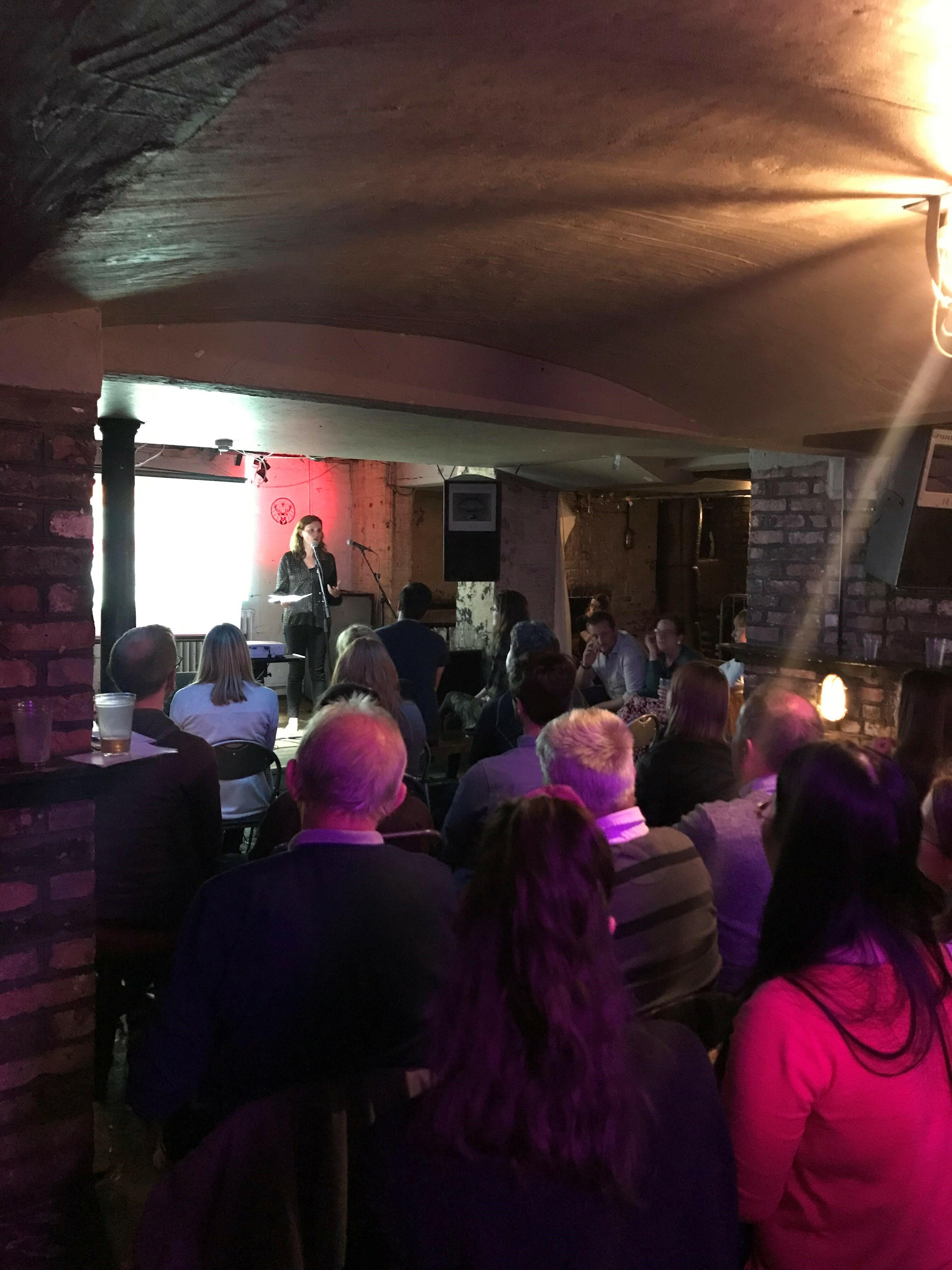
Liverpool hosted Pint of Science, an annual three-day festival that brings engaging science and latest research findings to pubs and bars across the world.
LSTM’s Dr Julie-Anne Tangena, Dr Aitor Casas-Sanchez, Professor Bertie Squire, and Dr Kerry Millington spoke at ‘Deadly Diseases and Creepy Crawlies’ as part of Pint of Science.
Post-doctoral Research Associate Dr Julie-Anne Tangena asked in her talk ‘Where have all the mosquitoes gone?’ outlining the adaptivity of mosquitoes and their changing behaviours when faced with vector control strategies. Julie-Anne also wowed the audience with her interesting and enlightening facts about mosquitoes and their characteristics!
Over a pint audiences listened to Dr Aitor Casas-Sanchez, Post-doctoral Research Associate, discussing ‘The sweet Achilles’ heel of COVID-19’. Audiences were walked through the fascinating journey of COVID-19 sugars, from the discovery of their role in infection to how these sugars can be exploited for treatments, for not only COVID-19, but also future viruses with pandemic potential.
To end Research Uptake Manager Dr Kerry Millington and Professor Bertie Squire, Dean of Clinical Sciences, and International Public Health, asked ‘How can we end the world’s second deadliest infectious disease? Together, Bertie and Kerry spoke about their work on The LIGHT Consortium funded by UK Aid providing new evidence on the effectiveness of different gender approaches to improve access to healthcare for those with TB in urban HIV-prevalent settings. The LIGHT consortium is a six-year cross-disciplinary global health research programme working with partners in Kenya, Malawi, Nigeria, Uganda, and the UK and contributes to improved health, socio-economic and equity outcomes, and efforts to stop the spread of TB.
During Kerry and Bertie’s talk, their colleague Dr Ebuka Ugwu from the Zankli Research Centre in Nigeria spoke, via a pre-recorded video, of the challenge that men suffer considerable barriers to TB treatment. These barriers impact not only on men’s health but also contributes to ongoing transmission of the disease creating personal, familial, social, and economic consequences for their families and the wider community.
LSTM’s Public Engagement Manager, Dr Elli Wright, said: “What an amazing festival to be a part of Pint of Science is an excellent opportunity to engage with non-scientific audiences in the relaxed and informal venue of The Shipping Forecast. Moreover, it was fantastic to be back to face-to-face public engagement events after the COVID-19 lockdowns. We are looking forward taking part in the festival again next year.”